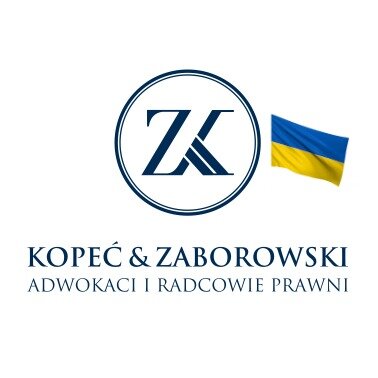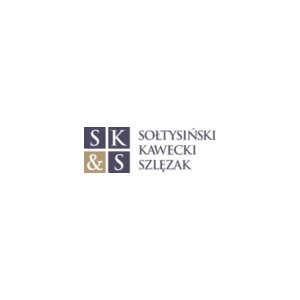Best Employment & Labor Lawyers in Warsaw
Share your needs with us, get contacted by law firms.
Free. Takes 2 min.
List of the best lawyers in Warsaw, Poland
About Employment & Labor Law in Warsaw, Poland
Employment and labor law in Warsaw, Poland, is framed within the broader legal framework set by Polish national legislation. This area of law is designed to protect the rights and duties of both employees and employers. It covers a wide range of topics including employment contracts, workplace discrimination, termination of employment, working hours, leave entitlements, and occupational safety and health. Poland is also a member of the European Union, and thus its employment laws are influenced by EU regulations and directives. Employers and employees in Warsaw must ensure compliance with national regulations such as the Labor Code while considering relevant European legislation.
Why You May Need a Lawyer
Various situations might necessitate the assistance of a lawyer specialized in employment and labor law. These can include, but are not limited to, disputes regarding employment contracts, wrongful termination claims, discrimination at the workplace, issues related to wages and salary, interpretation of collective bargaining agreements, and occupational safety violations. Legal representation can also be crucial for businesses navigating compliance with labor laws and regulations, as well as handling workplace investigations or labor disputes that could potentially lead to litigation.
Local Laws Overview
In Warsaw, as in the rest of Poland, employment and labor laws revolve around the Polish Labor Code, which is the primary legislation regulating labor relations. Key aspects of this code include the requirement for employment contracts to be in writing, regulations concerning working time (standard maximum of 40 hours per week), provisions for various types of leave such as annual leave and parental leave, and protection against workplace discrimination. Minimum wage is set nationally, but local circumstances, such as cost of living adjustments, may be considered in compensation discussions. Termination rules provide specific guidelines employers must follow, including notice periods and just cause for dismissal.
Frequently Asked Questions
What is the standard workweek in Warsaw, Poland?
The standard workweek in Poland is 40 hours, typically spread over five days, which aligns with EU standards. Overtime is subject to additional compensation.
How is employment termination handled under Polish law?
Employment termination in Poland must comply with specific legal requirements including notice periods, a valid reason for termination, and proper notification. Different rules may apply based on the type of employment contract.
What types of employment contracts are common in Poland?
Common types of employment contracts include indefinite contracts, fixed-term contracts, and specific-task contracts. Indefinite contracts tend to offer more job security.
Are employees entitled to paid leave?
Yes, employees in Poland are entitled to paid leave. The statutory minimum is 20 to 26 days of paid annual leave, depending on the employee's tenure. There are also provisions for maternity, paternity, and parental leave.
What protections are in place for workplace discrimination?
Polish law prohibits workplace discrimination based on gender, age, disability, race, religion, nationality, political opinion, trade union membership, ethnic origin, religion, belief, and sexual orientation. Victims may seek redress through legal channels.
How does the minimum wage work in Warsaw?
The minimum wage in Warsaw is set at the national level and is reviewed annually. Additional living costs in larger cities may be taken into account when setting salaries.
Can employers monitor employees' emails and internet usage?
While employers can monitor emails and internet usage, they must do so within legal boundaries ensuring it doesn't violate privacy rights. Employees should be informed about monitoring practices.
What are the requirements for health and safety in the workplace?
Employers must adhere to occupational safety and health regulations to ensure a safe working environment. This includes risk assessments, employee training, and providing necessary safety equipment.
Are non-compete clauses enforceable in Poland?
Non-compete clauses are enforceable under certain conditions, primarily related to time limits and geographical restrictions. The employer typically offers compensation during the non-compete period.
What legal recourse is available in case of an employment dispute?
In case of employment disputes, parties may seek resolution through labor courts or may opt for mediation or arbitration as alternative dispute resolution methods. Legal consultation is advised to navigate these processes.
Additional Resources
For individuals seeking more information or assistance, resources include the Polish State Labour Inspectorate, which offers guidance on labor rights and workplace conditions. The Citizen's Advice Bureau in Warsaw and various trade unions can also provide support. Additionally, professional organizations like the Chamber of Commerce or legal aid services may offer assistance or referrals to qualified employment and labor lawyers.
Next Steps
If you require legal assistance with employment and labor issues in Warsaw, consider consulting with a specialized employment lawyer for expert guidance tailored to your situation. Research potential attorneys or legal firms to find one with experience relevant to your needs. Prepare all relevant documents and information before consultations to streamline the process. Even initial consultations can help clarify your legal position and potential options for moving forward.
Lawzana helps you find the best lawyers and law firms in Warsaw through a curated and pre-screened list of qualified legal professionals. Our platform offers rankings and detailed profiles of attorneys and law firms, allowing you to compare based on practice areas, including Employment & Labor, experience, and client feedback.
Each profile includes a description of the firm's areas of practice, client reviews, team members and partners, year of establishment, spoken languages, office locations, contact information, social media presence, and any published articles or resources. Most firms on our platform speak English and are experienced in both local and international legal matters.
Get a quote from top-rated law firms in Warsaw, Poland — quickly, securely, and without unnecessary hassle.
Disclaimer:
The information provided on this page is for general informational purposes only and does not constitute legal advice. While we strive to ensure the accuracy and relevance of the content, legal information may change over time, and interpretations of the law can vary. You should always consult with a qualified legal professional for advice specific to your situation.
We disclaim all liability for actions taken or not taken based on the content of this page. If you believe any information is incorrect or outdated, please contact us, and we will review and update it where appropriate.
Browse employment & labor law firms by service in Warsaw, Poland
Warsaw, Poland Attorneys in related practice areas.

















